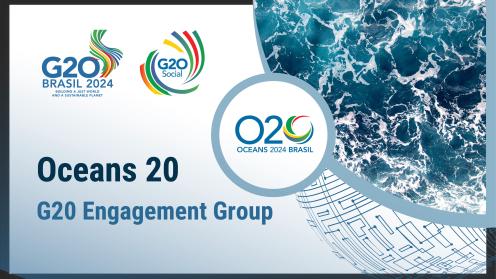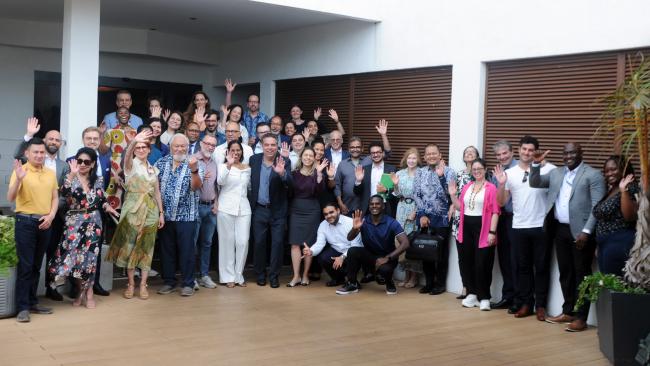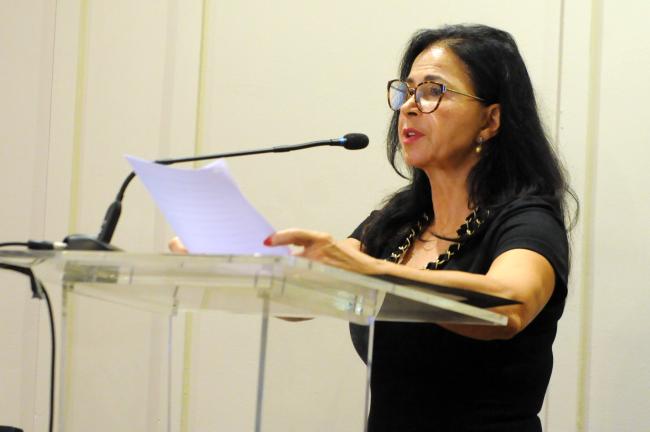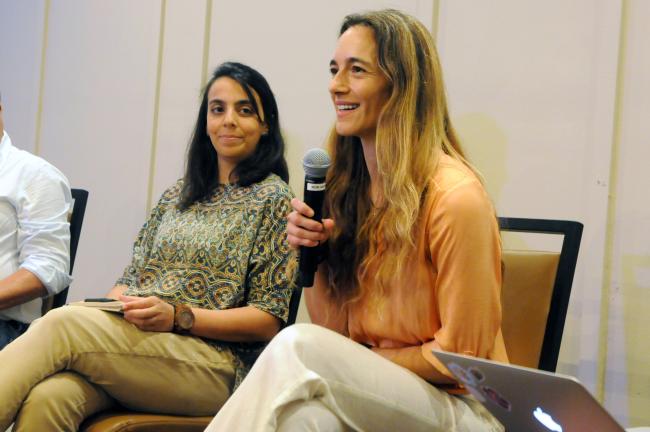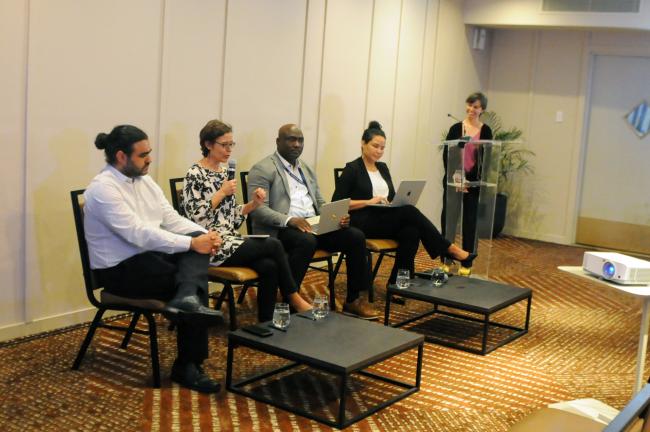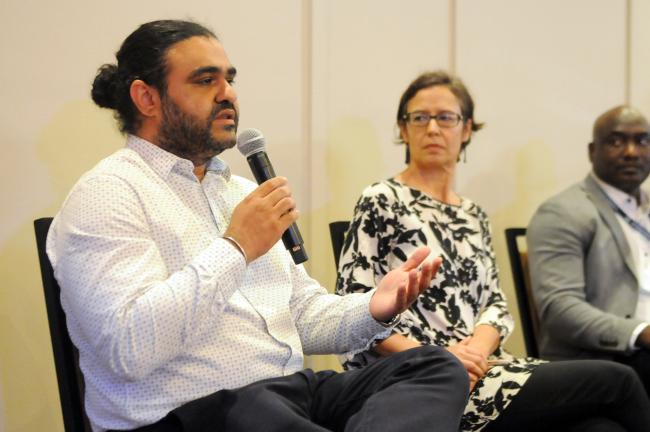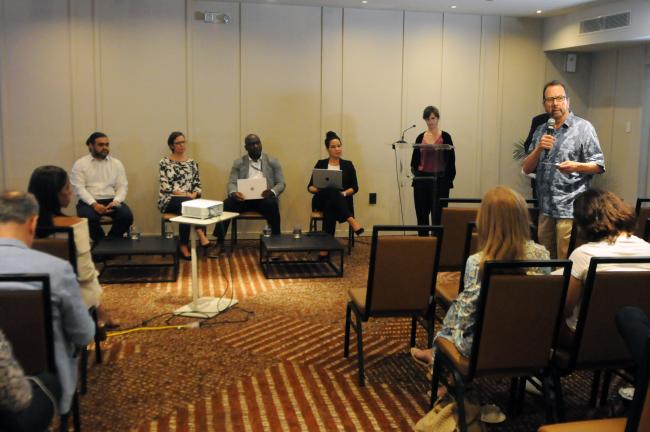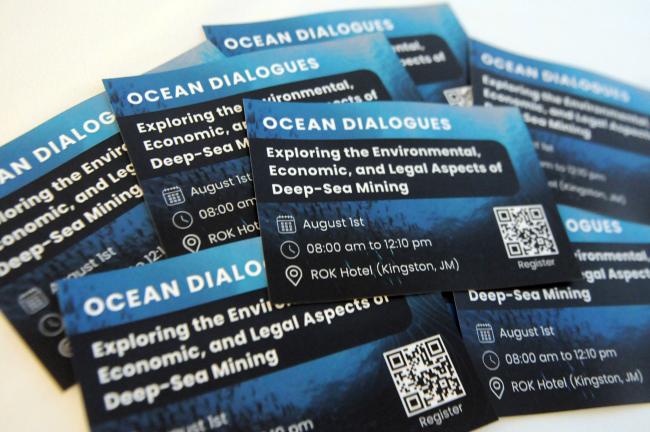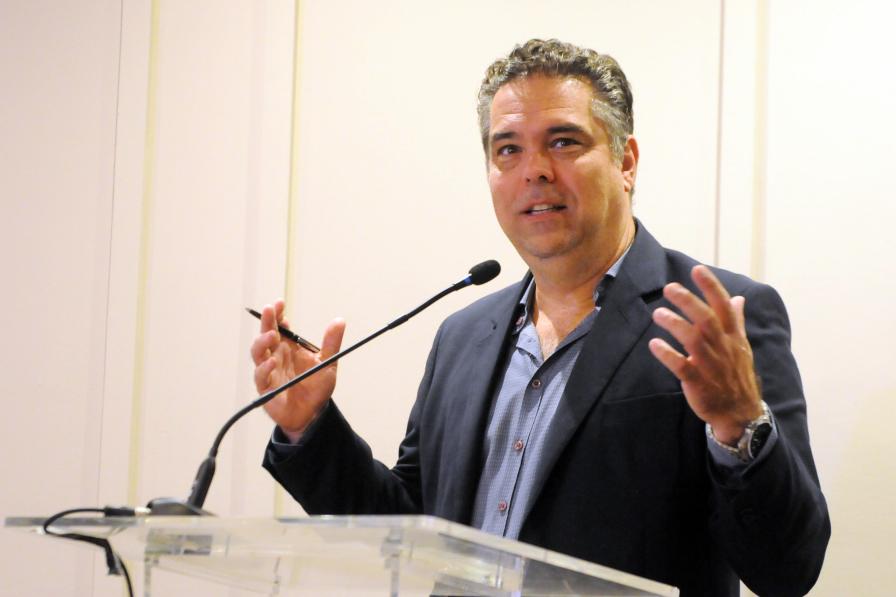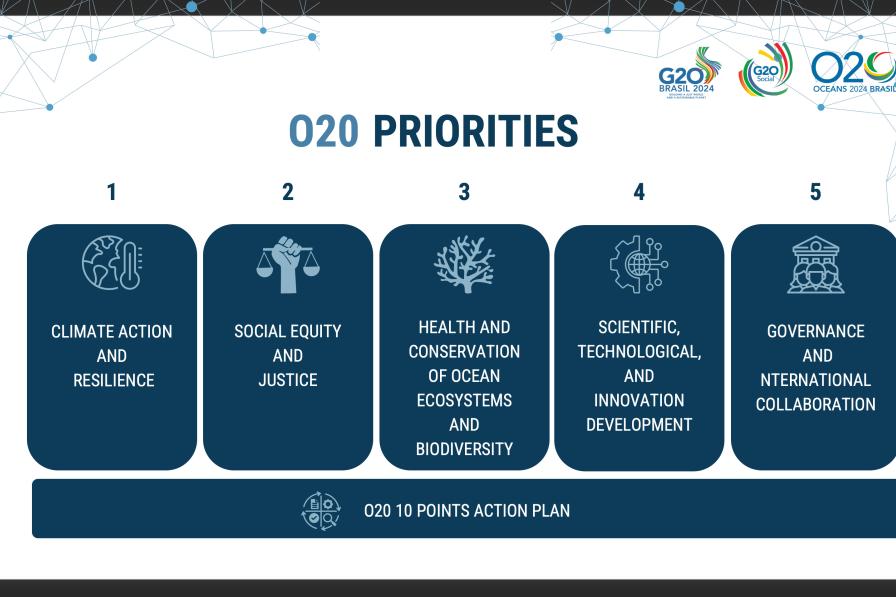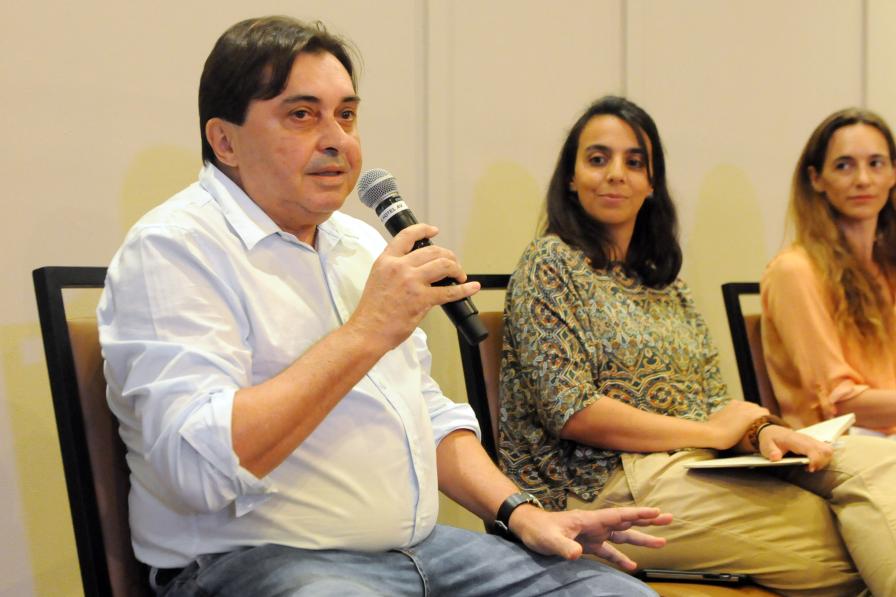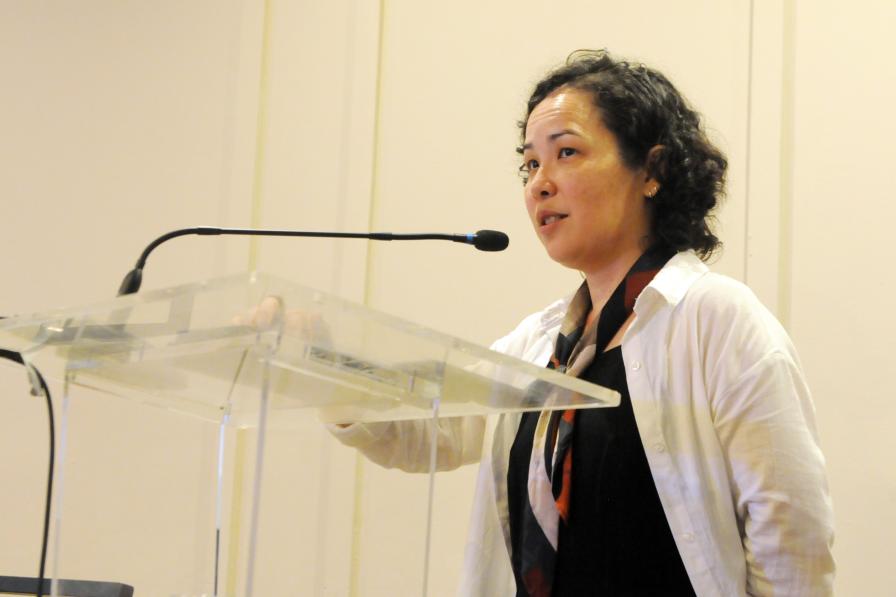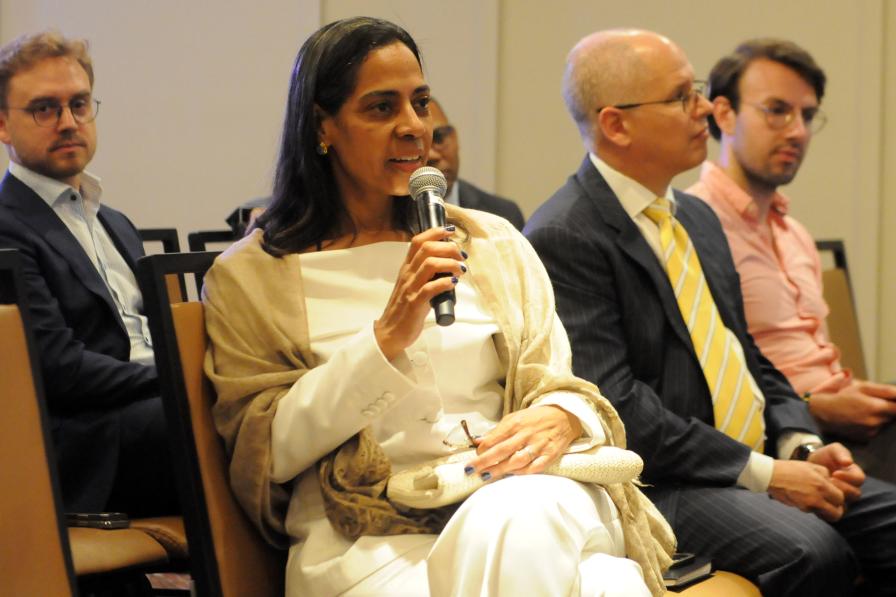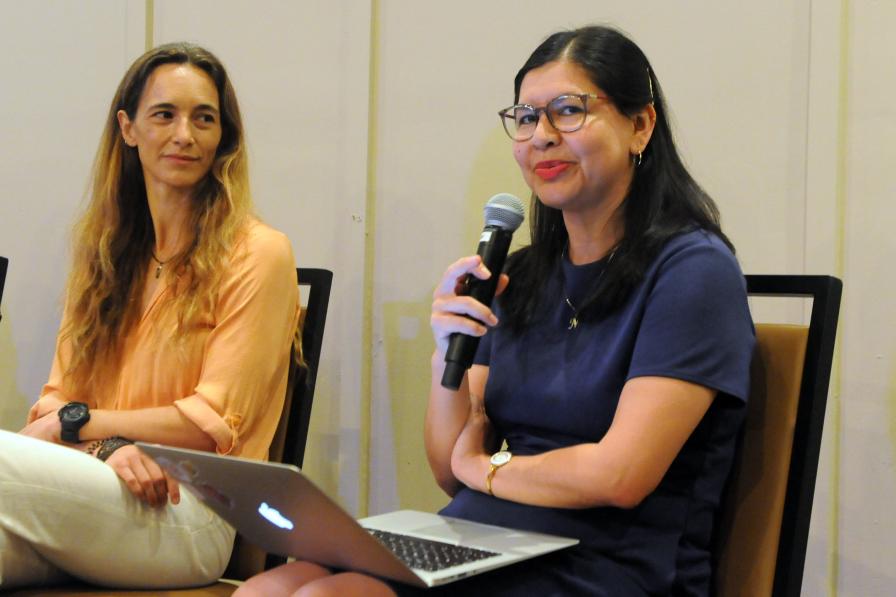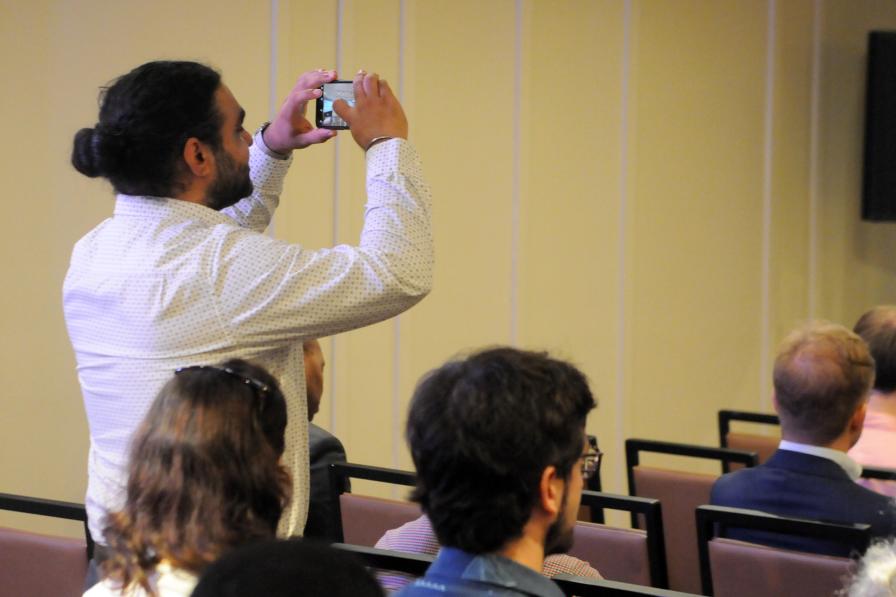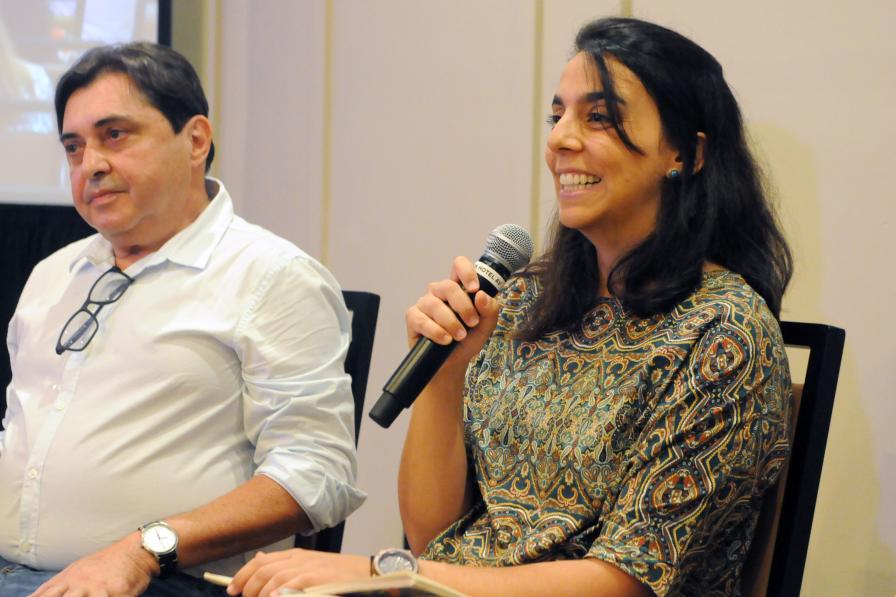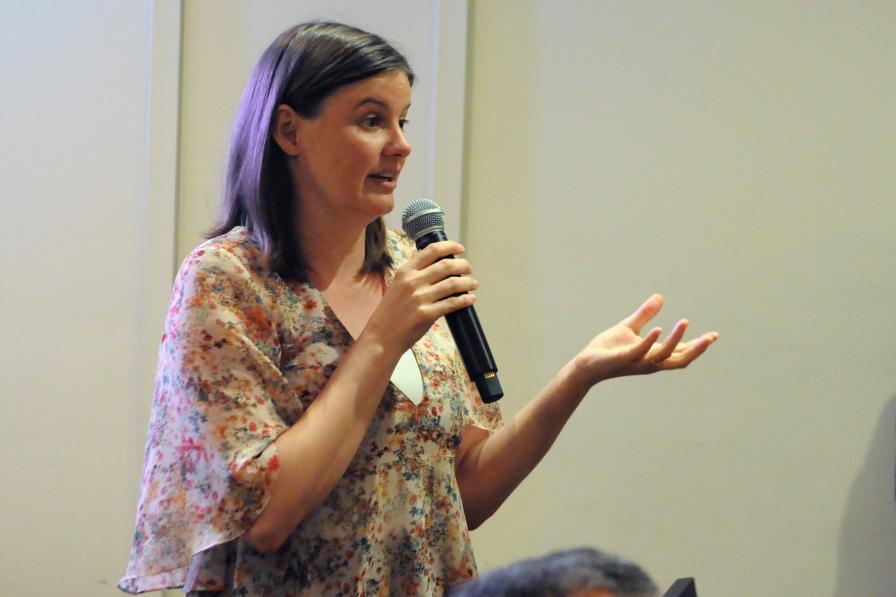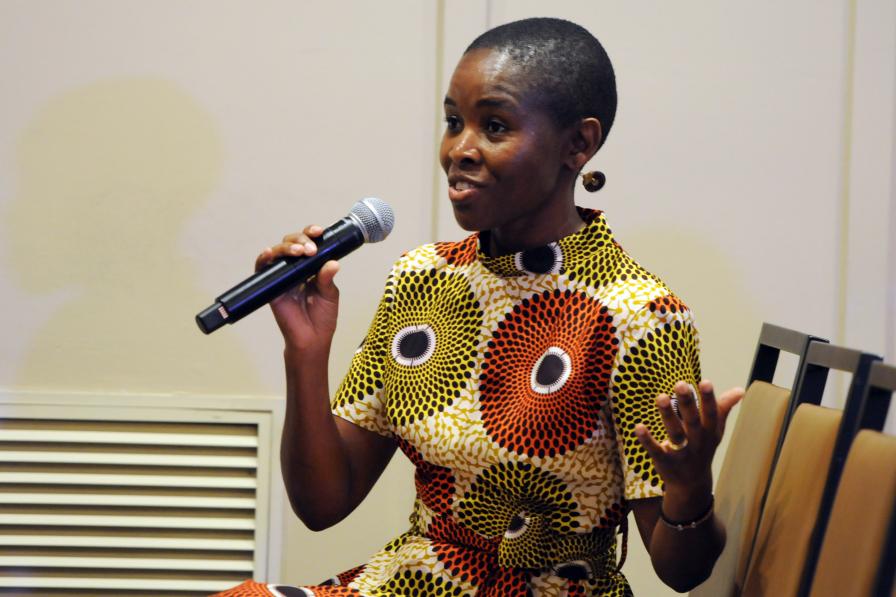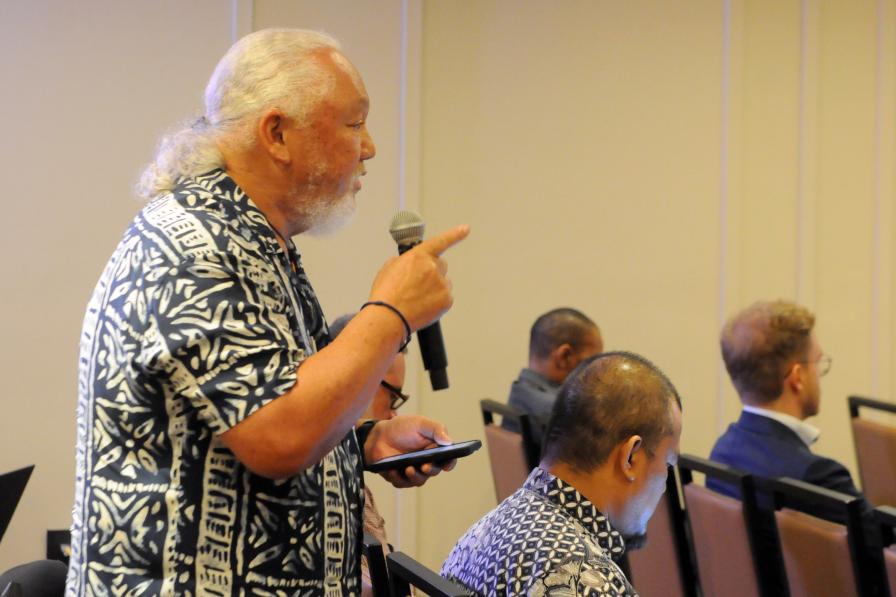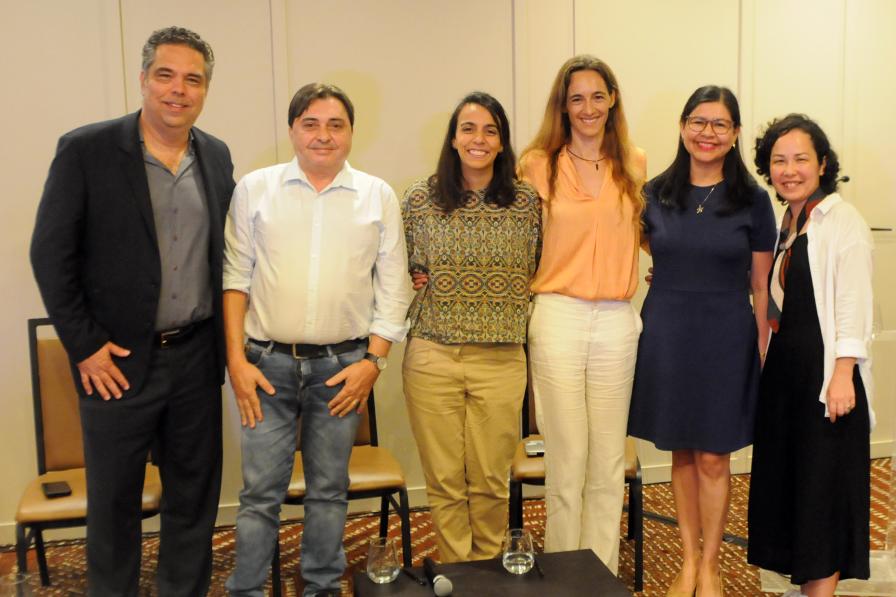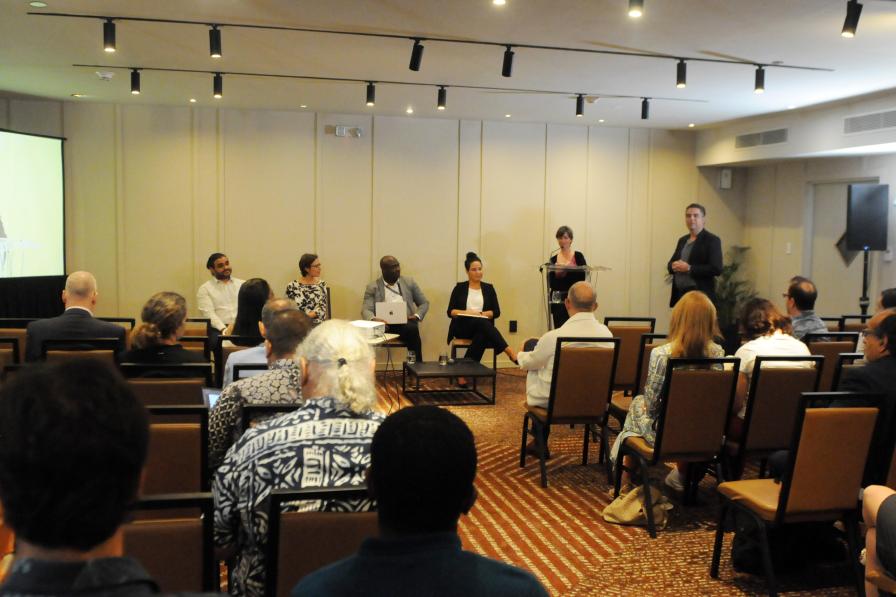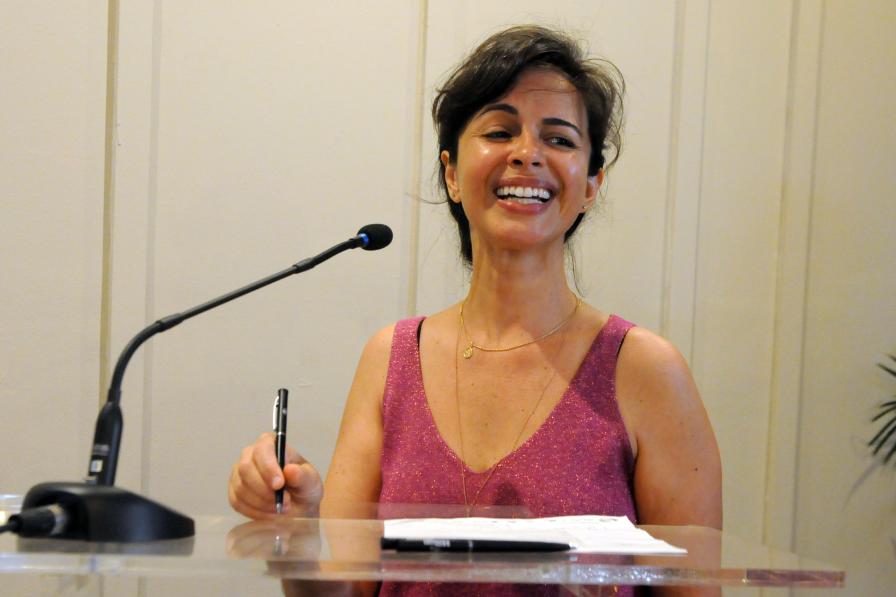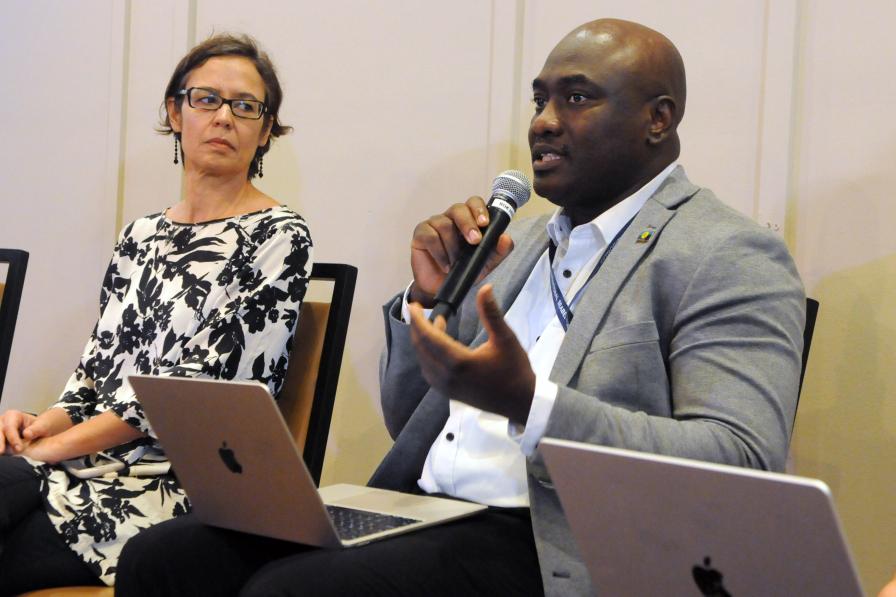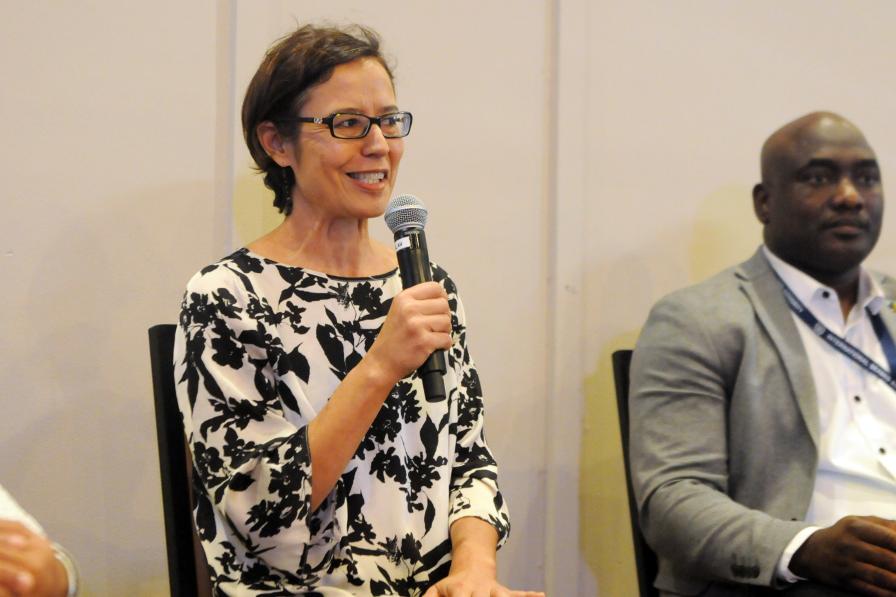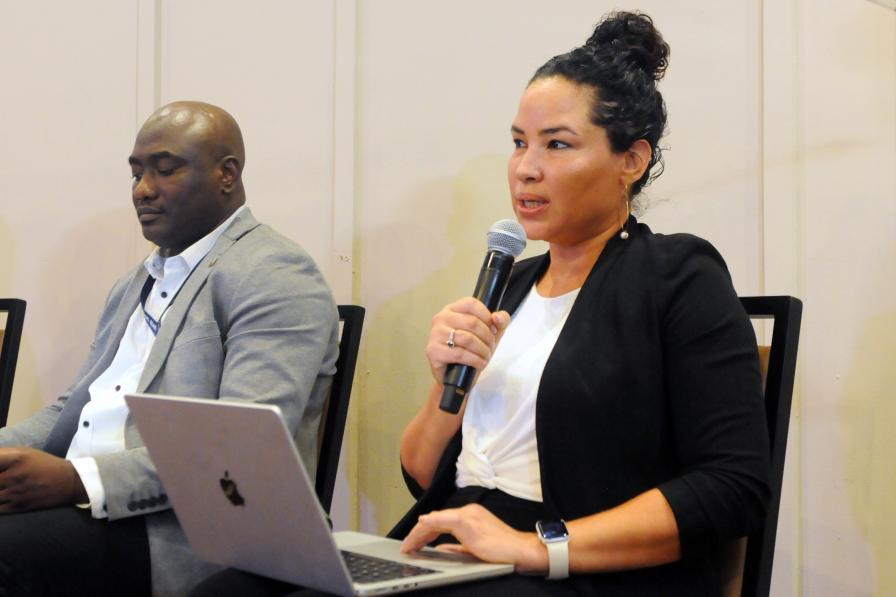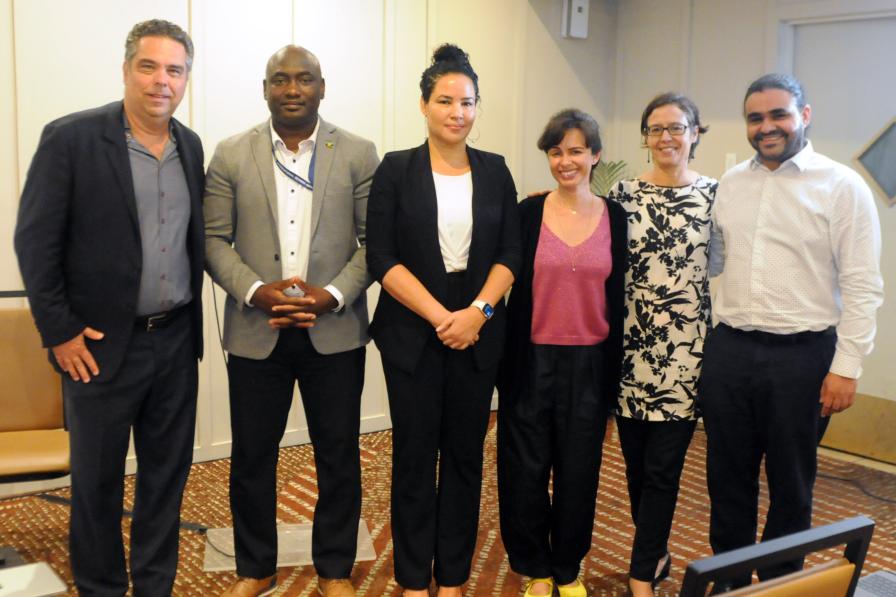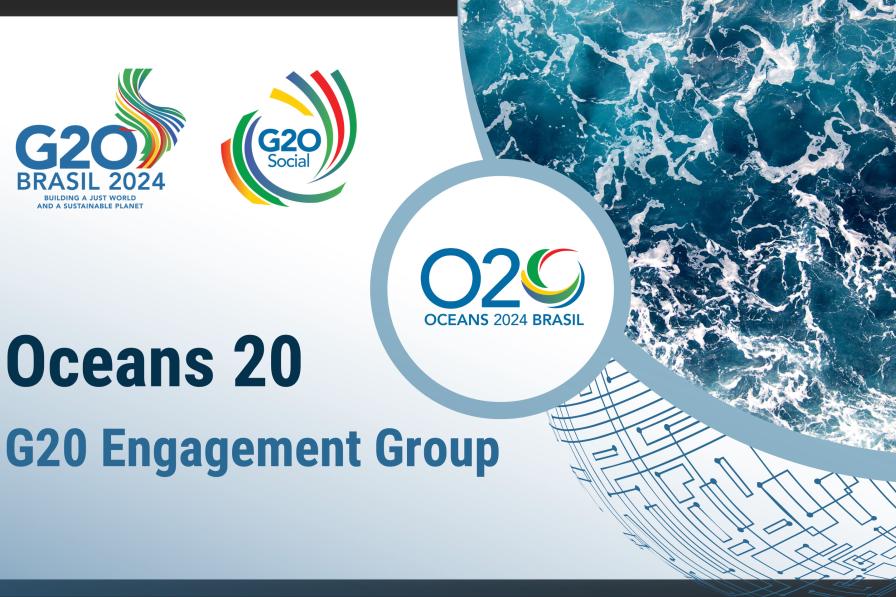About
This event was organized under Oceans20, an initiative of the Brazilian presidency of the G20, scientists and policymakers focused on scientific, environmental, economic, and legal aspects of deep-sea mining.
Exploring Environmental, Economic, and Legal Aspects of Deep-sea Mining
Dr. Alexander Turra, UN Educational, Scientific and Cultural Organization (UNESCO) Chair for Ocean Sustainability, University of São Paulo, Brazil, opened the session, introducing the Ocean Dialogues organized under Oceans20 (O20), an initiative of the Brazilian presidency of the G20 formalizing a civil society engagement group. He focused on G20 priorities and the oceans as a transformative societal agent. He underscored the ambition to create a permanent formal group of civil society engagement, map the stakeholders from different sectors, and ensure the legacy of the O20 process in the years to come.
Elza Moreira Marcelino de Castro, Ambassador, Permanent Representative of Brazil to the International Seabed Authority (ISA), stressed that during its G20 presidency, Brazil prioritized the oceans, focusing on marine spatial planning, coastal and ocean management, and ocean-related nationally determined contributions and climate action plans. She highlighted a strong message in favor of the conservation and sustainable use of the oceans, emphasizing stakeholders’ roles in amplifying the message. She concluded by underscoring that the ISA needs to adopt stringent environmental provisions and robust regulations on capacity building and technology transfer; transparency and accountability; inspection, compliance, and enforcement; and fair and equitable benefit-sharing.
A panel session moderated by Dr. Luciana Yokoyama Xavier, UNESCO Chair for Ocean Sustainability, University of São Paulo, Brazil, focused on environmental aspects of deep-sea mining, related challenges and major concerns, knowledge gaps, and potential recommendations for the G20.
Dr. Natalia Jimenez Alegria, Deputy Legal Adviser, Ministry of Foreign Affairs, Mexico, called for additional scientific tools for informed decision making. She stressed the need for capacity building for developing country members and a robust legal framework with enforcement mechanisms.
Dr. Patricia Esquete, Assistant researcher, Universidade de Aveiro, Portugal, stressed that deep-sea non-renewable resources are the basis of deep-sea ecosystems’ functioning, which have unique characteristics. She highlighted vast knowledge gaps, underscoring that studies show that 90% of the species in the Clarion-Clipperton Zone have yet to be discovered. She urged additional research on inactive vents and ecosystem variability over time, emphasizing that without baseline data it is impossible to understand ecosystem functions.
Dr. Maila Guilhon, Deep Ocean Stewardship Initiative (DOSI), noted the need to ensure coherence in ocean management across different international instruments. She highlighted cumulative impacts and the services that deep-sea ecosystems provide. She underscored the need for: a standardized process on regional environmental management plans (REMPs); an equitable benefit-sharing mechanism for humankind as a whole; and “anticipatory” decision making.
Dr. José Angel Alvarez Perez, Professor, Universidade do Vale do Itajaí, Brazil, noted general knowledge on deep-sea ecosystems has increased but important gaps remain, expressing doubt on whether general knowledge will be enough to guide adaptive management in site-specific problems. He stressed that if oxygen generation at the seabed, known as “dark oxygen,” is confirmed, it may modify the entire debate on deep-sea mining. He urged for independent scientific initiatives in the mining areas and additional efforts toward seafloor mapping and studies on inactive hydrothermal vents, cobalt-rich areas, and deep-pelagic ecosystems.
The panel concluded with a Q&A session from the audience, where they discussed: knowledge gaps in polymetallic nodules, cobalt crusts, and sulphide deposits; test mining; cumulative impacts; harmonization with the BBNJ Agreement; dark oxygen production; area-based management tools; equitable distribution of benefits; the need for independent and inclusive research from developing countries; and the role of Indigenous knowledge systems.
A second panel session, moderated by Julia Schutz Veiga, PhD Candidate in International Law at NOVA School of Law, focused on understanding the need to balance scientific and economic approaches to deep-sea mining and how this can be translated into legal provisions.
Tamara Thomas, Executive Director of Ocean Ties, Seychelles, highlighted the importance of connecting activities within Seychelles’ exclusive economic zone and the joint management area with Mauritius with activities in the deep sea. She stressed that robust environmental impact assessments are needed before any activity takes place and the importance of REMPs for informed decision making. She drew attention to marine spatial planning as a relevant tool for aligning all the different activities conducted in a geographic area of the ocean and helping implement several international commitments.
Wisnique Panier, Permanent Mission of Haiti to the UN, spoke of the importance of maritime resources to Haiti’s economic development and how the economic and legal aspects of deep-sea mining are “crucial” to Haiti’s future. He underscored the challenges for developing countries to conduct scientific research and engage in deep-sea activities. He also suggested that the G20 should work toward improving transparency and accountability.
Dr. Ana Flávia Costa, Professor at the Universidade de Brasília, Brazil, discussed the politics of ocean governance and the interlinkages to the economic and legal aspects of deep-sea mining. She noted the difficulties of regulating the oceans because of economic interests and the appropriation of marine resources. She emphasized that if environmental externalities are not accounted for, a weak and unclear legal framework will encourage mining endeavors. She also pointed toward “strategic diplomacy,” saying that from a geopolitical perspective, countries seek to become self-sufficient and stop relying on others' resources.
Dr. Pradeep Singh, Fellow at the Research Institute for Sustainability in Potsdam, Germany, stressed the need to consider the environmental externalities of deep-sea mining, potential harm to the ocean’s natural capital, the need to develop equitable benefit-sharing mechanisms, and the implications of deep-sea mining for terrestrial mining. He noted that the UN Convention on the Law of the Sea (UNCLOS) includes several safeguards to prevent mining in the absence of rules and regulations, thus avoiding unregulated mining activities in the Area, stressing that countries are increasingly vocal against the provisional approval of plans of work until the Mining Code is completed.
In the ensuing discussion, participants focused on: ways to estimate externalities and environmental costs; potential scenarios for the ISA Council in the near future, particularly regarding the application of a plan of work prior to the adoption of the exploitation regulations; the geopolitical aspects involved in supporting deep-sea mining; and the cases where deep-sea mining and price volatility might lead to financial losses for the ISA.
Dr. Alexander Turra thanked for “the exciting deep dive into scientific, environmental, economic, and legal aspects of deep-sea mining.” He stressed the G20's role in deep-sea mining discussions, the relevance of mineral security, and the need for more diverse voices and knowledge systems to be included in the international system. Highlighting the role of responsibility in dealing with cumulative impacts and the co-construction of knowledge, he closed the session, stressing that “we are all on the same planet and all have voices.”
To receive free coverage of global environmental events delivered to your inbox, subscribe to the ENB Update newsletter.
All ENB photos are free to use with attribution. For this event, please use: Photo by IISD/ENB - Diego Noguera
Environmental Aspects of Deep-Sea Mining
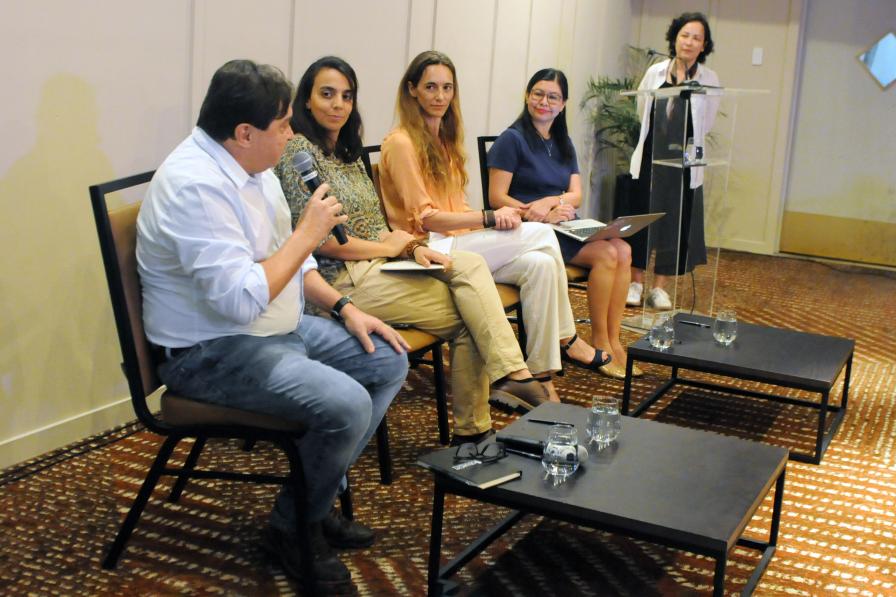
Panel on Environmental Aspects of Deep-Sea Mining (L-R) José Angel Alvarez Perez, Universidade do Vale do Itajaí, Brazil; Maila Guilhon, DOSI; Patricia Esquete, Assistant researcher, Universidade de Aveiro, Portugal; and Natalia Jiménez Alegría, Ministry of Foreign Affairs, Mexico; and Moderator Luciana Yokoyama Xavier, University of São Paulo, Brazil
